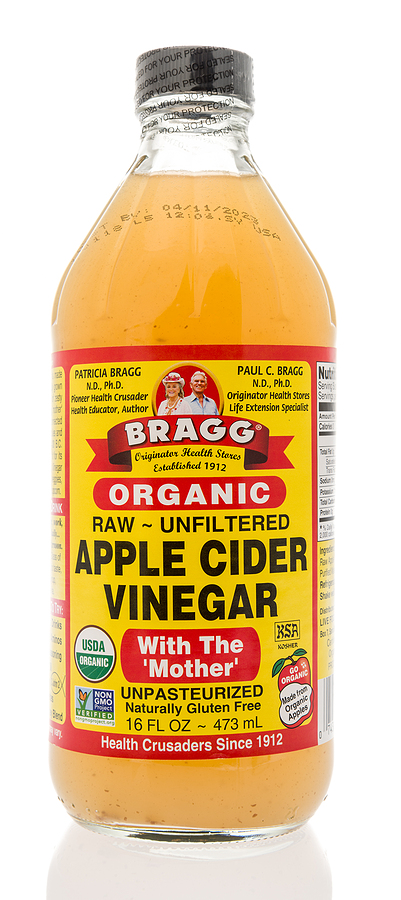No doubt you’ve heard about many of the health trends going on. These include trendy miracle foods and things you should or shouldn’t eat to improve your health. Sometimes you have to be a health trend detective to determine if something is fact, fiction, or somewhere in between. Let’s check out a few of these popular health trends:
1. Coconut oil is healthy for you.
Coconut oil has been trending in the health community for a while now. Fans love it because it contains what’s called Medium Chain Triglycerides, or MCTs.
MCTs are a type of fat that actually help the body burn calories rather than being stored as fat. [1] Eating MCTs alone has been shown to help people lose weight. Some people think that eating coconut oil can help them shed pounds because of this. The thing is, only some of the fats in coconut oil are MCTs, and the rest haven’t been shown to react the same way in the body. If you’re looking for weight loss help, coconut oil is not a magic cure.
Coconut oil is also praised for helping with cholesterol. While some studies show that coconut oil may help lower cholesterol, it is still a saturated fat. Saturated fats can increase your risk for heart disease. [2] That means that coconut oil is not the most heart healthy choice. Think of it as somewhere in the middle. It is probably not as bad for you as butter but unsaturated oils like olive oil and vegetable oil are better.
Verdict: Somewhere in between
2. Trust everything you see in food documentaries.
Have you seen the new documentary, ‘What the Health’? What about ‘Fed Up’ or ‘GMO OMG’? Each of these documentaries cover different topics: the harmful risks of eating animal products, how the sugar industry is responsible for obesity in the US, and how GMOs are taking over the food system. Even though they cover different topics these three movies and other documentaries like them have some things in common:
- Food documentaries tend to only show you one side of the story. They have a message (like showing you how great a vegan diet is). They want you to believe in the message so they typically don’t mention things that will make you question it (like that a non-vegan diet can be healthy too). Not telling the full story can make it hard for people to make up their own minds about an issue.
- They often use scary language. ‘What the Health’ said that eggs are as bad as cigarettes. ‘Fed Up’ uses the word “toxic” to describe sugar. They say extreme things to try to convince you into believing their message.
- Sometimes they say things that aren’t completely true to help support their point. These documentaries often use experts such as doctors and scientists to make their point believable. Remember that not all experts are good at telling the full story either. This is especially true when they misinterpret research.
Are all food documentaries bad? Absolutely not. These documentaries make you think about issues that need to be thought about. For example, GMOs do threaten our food system in some ways, even if they benefit the food system in others. The messages are not totally incorrect but the way they are presented to the public need to be better.
Verdict: Somewhere in between
3. Drinking apple cider vinegar will help you lose weight.
Chances are that by now you’ve heard someone say that drinking apple cider vinegar will help you lose weight. Popular press says that if you drink apple cider vinegar before a meal it can help prevent fat storage, as well as decrease appetite and control blood sugar. Can vinegar really help you lose weight? Let’s look and see what is fact and what is fiction:

The main ingredient in apple cider vinegar that has an effect on the body is acetic acid. Acetic acid can be found in any type of vinegar, not just apple cider vinegar. Acetic acid has indeed been found to lower appetite by causing the stomach to empty food into the gut slower than normal. [3] This slow down can make you feel nauseous. [4] When you’re nauseous you are more likely to stop eating sooner, and if you’re eating less you could eventually lose weight.
Acetic acid has also been found to prevent fat from building up in rats, though human bodies can react differently than those of animals. [5] Overall, making your stomach feel sick isn’t the best way to lose weight. There is also no guarantee that you will stop eating early enough to see significant weight loss.
While these effects of vinegar might sound interesting, be careful. Drinking vinegar straight can damage your throat and wear down the protective coating on your teeth7. It can also cause acid reflux, or heart burn. Speak with you doctor before you try to incorporate large amounts of vinegar into your diet.
If you do include it, always dilute the vinegar (1-2 tablespoons in a glass of water). Adding vinegar to food is a tasty option as well. Keep in mind that there is no guarantee for weight loss and there can be uncomfortable side effects from drinking vinegar.
Verdict: Somewhere in between
Written by Taylor Newman, Ph.D. Candidate | Edited by Laurel Sanville, MS, RDN, LD
Did you notice that all three trends were “somewhere in between”? That’s because health trends tend to be based in truth but then they are exaggerated without proper proof. Not everything is black and white. That’s why you as a health trend detective need to look at the evidence before deciding what to believe!
